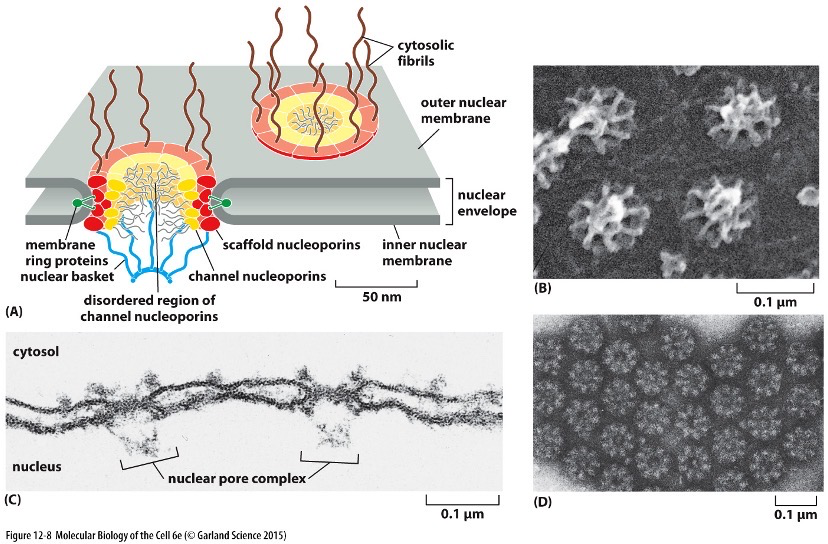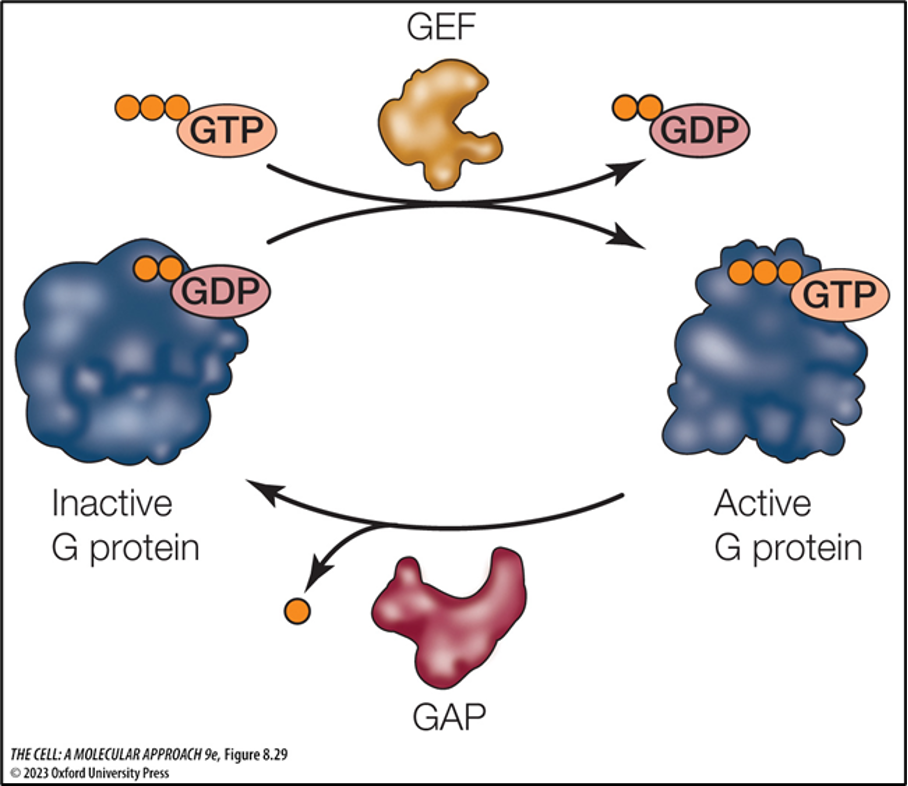Nuclear pore complex and protein transport
1/13
There's no tags or description
Looks like no tags are added yet.
Name | Mastery | Learn | Test | Matching | Spaced |
|---|
No study sessions yet.
14 Terms
What is a nuclear pore complex?
An aqueous channel that connects the nucleoplasm to the cytoplasm
What is the structure of a nuclear pore complex like?
It has a large quaternary protein structure and has a very ordered 8-fold symmetry. It has a disordered centre which is a mesh of tangled proteins in the middle of the channel
What are nucleoporins?
Proteins that form the NPC
What is a nuclear basket?
It forms a cage-like structure on the nucleus side
What are cytosolic fibrils?
Long proteins that reach into the cytosol (cytoplasmic side)
What do nuclear pore complexes look like?

How many macromolecules can the NPC transport per second?
Around 1000 macromolecules per second
Can the NPC transport in both directions at the same time?
Yes
What can diffuse freely through the NPC?
<5000Da (proteins up to 60KDa can diffuse through, it just takes longer)
What cannot diffuse through the NPC?
Proteins >60KDa cannot diffuse through so require specialised mechanisms and energy to get them through
What are signal sequences (Nuclear Localisation Signal)?
If a protein needs to be exported from the nucleus to the cytosol, it will have a signal sequence that indicates this
What are nuclear import receptors?
They recognise nuclear localisation signals (NLS) and are often called importins. They bind to FG repeats on nucleoporins in the cytosolic domain of the NPC
How do proteins move through the NPC?
By binding sequentially to FG repeats
What is GTP and its regulation?
GTP = guanosine triphosphate
GTP binding protein = protein that binds GTP and also acts as a GTPase (hydrolyses GTP to GDP)
GAP = GTPase activating protein. Binds to GTP binding protein and induces GTP hydrolysis
GEF = guanine nucleotide exchange factor. Binds to GTP-binding protein and causes it to release GDP
Proteins are active when bound to GTP and inactive bound to GDP. They can switch from an active form to an inactive form throughout
Conversion between the active and inactive is mediated by GAP and GEF
